#https://www.excellencetechnology.in/best-c-and-c-training-institute-in-chandigarh-mohali/
Explore tagged Tumblr posts
Text
Mastering Data Structures: A Comprehensive Course for Beginners
Data structures are one of the foundational concepts in computer science and software development. Mastering data structures is essential for anyone looking to pursue a career in programming, software engineering, or computer science. This article will explore the importance of a Data Structure Course, what it covers, and how it can help you excel in coding challenges and interviews.
1. What Is a Data Structure Course?
A Data Structure Course teaches students about the various ways data can be organized, stored, and manipulated efficiently. These structures are crucial for solving complex problems and optimizing the performance of applications. The course generally covers theoretical concepts along with practical applications using programming languages like C++, Java, or Python.
By the end of the course, students will gain proficiency in selecting the right data structure for different problem types, improving their problem-solving abilities.
2. Why Take a Data Structure Course?
Learning data structures is vital for both beginners and experienced developers. Here are some key reasons to enroll in a Data Structure Course:
a) Essential for Coding Interviews
Companies like Google, Amazon, and Facebook focus heavily on data structures in their coding interviews. A solid understanding of data structures is essential to pass these interviews successfully. Employers assess your problem-solving skills, and your knowledge of data structures can set you apart from other candidates.
b) Improves Problem-Solving Skills
With the right data structure knowledge, you can solve real-world problems more efficiently. A well-designed data structure leads to faster algorithms, which is critical when handling large datasets or working on performance-sensitive applications.
c) Boosts Programming Competency
A good grasp of data structures makes coding more intuitive. Whether you are developing an app, building a website, or working on software tools, understanding how to work with different data structures will help you write clean and efficient code.
3. Key Topics Covered in a Data Structure Course
A Data Structure Course typically spans a range of topics designed to teach students how to use and implement different structures. Below are some key topics you will encounter:
a) Arrays and Linked Lists
Arrays are one of the most basic data structures. A Data Structure Course will teach you how to use arrays for storing and accessing data in contiguous memory locations. Linked lists, on the other hand, involve nodes that hold data and pointers to the next node. Students will learn the differences, advantages, and disadvantages of both structures.
b) Stacks and Queues
Stacks and queues are fundamental data structures used to store and retrieve data in a specific order. A Data Structure Course will cover the LIFO (Last In, First Out) principle for stacks and FIFO (First In, First Out) for queues, explaining their use in various algorithms and applications like web browsers and task scheduling.
c) Trees and Graphs
Trees and graphs are hierarchical structures used in organizing data. A Data Structure Course teaches how trees, such as binary trees, binary search trees (BST), and AVL trees, are used in organizing hierarchical data. Graphs are important for representing relationships between entities, such as in social networks, and are used in algorithms like Dijkstra's and BFS/DFS.
d) Hashing
Hashing is a technique used to convert a given key into an index in an array. A Data Structure Course will cover hash tables, hash maps, and collision resolution techniques, which are crucial for fast data retrieval and manipulation.
e) Sorting and Searching Algorithms
Sorting and searching are essential operations for working with data. A Data Structure Course provides a detailed study of algorithms like quicksort, merge sort, and binary search. Understanding these algorithms and how they interact with data structures can help you optimize solutions to various problems.
4. Practical Benefits of Enrolling in a Data Structure Course
a) Hands-on Experience
A Data Structure Course typically includes plenty of coding exercises, allowing students to implement data structures and algorithms from scratch. This hands-on experience is invaluable when applying concepts to real-world problems.
b) Critical Thinking and Efficiency
Data structures are all about optimizing efficiency. By learning the most effective ways to store and manipulate data, students improve their critical thinking skills, which are essential in programming. Selecting the right data structure for a problem can drastically reduce time and space complexity.
c) Better Understanding of Memory Management
Understanding how data is stored and accessed in memory is crucial for writing efficient code. A Data Structure Course will help you gain insights into memory management, pointers, and references, which are important concepts, especially in languages like C and C++.
5. Best Programming Languages for Data Structure Courses
While many programming languages can be used to teach data structures, some are particularly well-suited due to their memory management capabilities and ease of implementation. Some popular programming languages used in Data Structure Courses include:
C++: Offers low-level memory management and is perfect for teaching data structures.
Java: Widely used for teaching object-oriented principles and offers a rich set of libraries for implementing data structures.
Python: Known for its simplicity and ease of use, Python is great for beginners, though it may not offer the same level of control over memory as C++.
6. How to Choose the Right Data Structure Course?
Selecting the right Data Structure Course depends on several factors such as your learning goals, background, and preferred learning style. Consider the following when choosing:
a) Course Content and Curriculum
Make sure the course covers the topics you are interested in and aligns with your learning objectives. A comprehensive Data Structure Course should provide a balance between theory and practical coding exercises.
b) Instructor Expertise
Look for courses taught by experienced instructors who have a solid background in computer science and software development.
c) Course Reviews and Ratings
Reviews and ratings from other students can provide valuable insights into the course’s quality and how well it prepares you for real-world applications.
7. Conclusion: Unlock Your Coding Potential with a Data Structure Course
In conclusion, a Data Structure Course is an essential investment for anyone serious about pursuing a career in software development or computer science. It equips you with the tools and skills to optimize your code, solve problems more efficiently, and excel in technical interviews. Whether you're a beginner or looking to strengthen your existing knowledge, a well-structured course can help you unlock your full coding potential.
By mastering data structures, you are not only preparing for interviews but also becoming a better programmer who can tackle complex challenges with ease.
3 notes
·
View notes
Text
Java Script Training In Chandigarh
Java: A Comprehensive Guide for Developers
Java is one of the most popular programming languages, widely used in web development, mobile applications, and enterprise solutions. It’s known for its platform independence, object-oriented nature, and robust performance. In this guide, we will explore key aspects of Java, its features, and why it continues to be a top choice for developers.
1. What is Java?
Java is a high-level, class-based, and object-oriented programming language. Initially developed by Sun Microsystems in 1995, Java allows developers to "write once, run anywhere" (WORA). This makes it ideal for creating scalable and flexible applications across various platforms.
Keywords: Java programming, object-oriented, cross-platform
2. Key Features of Java
Java offers several distinct features that make it a reliable choice for developers:
Platform Independence: Java code runs on any device or operating system with the Java Virtual Machine (JVM).
Object-Oriented: Java’s focus on objects simplifies code reusability and modularity.
Robust Security: Java provides a secure environment for coding, preventing unauthorized access and data leaks.
Multithreading: Java supports concurrent execution of tasks, enhancing performance.
Automatic Memory Management: With built-in garbage collection, Java handles memory allocation automatically.
Keywords: Java features, JVM, secure programming, multithreading, memory management
3. Why Java is Ideal for Web and Mobile Applications
Java's adaptability across different environments makes it the preferred language for web and mobile app development. Here’s why:
Cross-Platform Compatibility: Java applications can be run on any platform without modification.
Wide Range of Libraries: Java has a vast library ecosystem, accelerating development for complex applications.
Community Support: With millions of developers worldwide, Java has strong community backing and extensive documentation.
Keywords: Java development, mobile applications, web applications, platform compatibility, Java libraries
4. Future of Java in Software Development
Java continues to evolve, with regular updates improving performance, security, and features. It remains relevant for modern-day web, mobile, and cloud-based applications, ensuring its place in the future of software development.
Keywords: future of Java, Java updates, software development, Java evolution
0 notes
Text
C and C++ Training in Chandigarh
Excellence Technology offers unparalleled C and C++ Training in Chandigarh. Our structured courses are designed to equip you with programming knowledge, from basics to advanced, necessary in the job market today. Our experienced industry professionals provide in-depth instruction, real-world examples, and hands-on experience. Join Excellence Technology today and transform your programming skills with the dynamic C and C++ Training in Chandigarh.
0 notes
Text
Best C And C++ Training Institute In Chandigarh Mohali

Excellence Technology stands out as the premier C and C++ training institute in Chandigarh Mohali, offering unparalleled education in programming. With a dynamic curriculum, industry-expert instructors, and hands-on projects, it cultivates a profound understanding of C and C++ languages. Students gain comprehensive coding skills, problem-solving prowess, and real-world application expertise. Excellence Technology's state-of-the-art facilities and personalized guidance ensure a transformative learning experience, propelling individuals towards success in the software realm.
0 notes
Text
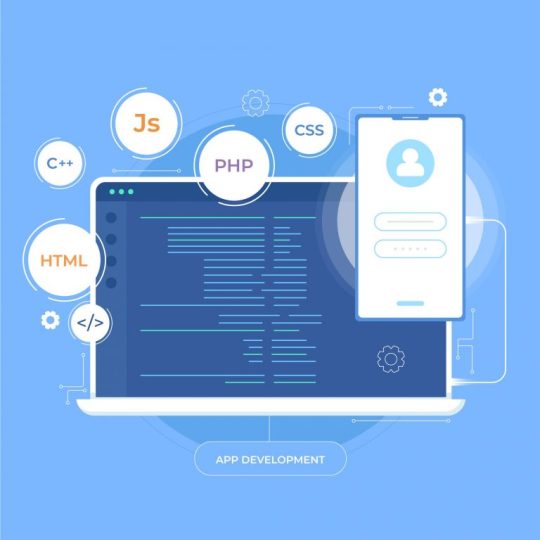
C and C++ Training In Chandigarh
In Excellence Technology C And C++ Training in chandigarh Institute C++ is the most powerful and flexible object oriented programming computer language which is used for operating systems, compilers, interpreters, search engine and graphic programs. We offer this course to help students clear their C++ concepts through a combination of theory and lab practice.
It covers C++ programming language and its interactions with software design. We offer this advance course with the following objectives:
Describes the concept of OOPS and its terminology including encapsulation, abstraction, polymorphism, inheritance, etc.
Tells the advantages of C++ over C
Show how to declare and define classes and objects
Introduce the concept of constructors and destructors
Describes operators, their overloading, comparison, data conversion, etc.
Detailed theory on inheritance, polymorphism, virtual functions
Tells about templates, exceptions, streams and strings
Tells about object oriented systems development
0 notes
Text
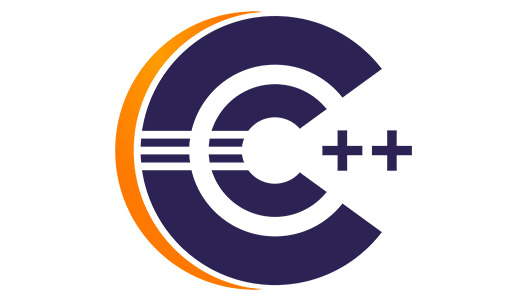
0 notes
Text
What is Web Designing Course? Advantages of web designing in full explanation.
Web Designing Course in Hamirpur with an emphasis on incorporating keywords like "Web Designing Course," "Hamirpur," and related terms effectively can improve visibility and engagement.

Web Designing Course in Hamirpur – Master the Digital World!
Are you looking for the best Web Designing Course in Hamirpur? Start your journey into the digital realm with our comprehensive program, tailored for aspiring web designers and developers right here in Hamirpur!
What is Our Web Designing Course in Hamirpur About?
Our course is designed to equip you with the skills needed to create stunning, functional websites. From beginners to advanced learners, we provide hands-on training in:
HTML and CSS: The building blocks of web design.
JavaScript: Add interactivity to your designs.
Responsive Design: Make websites that look great on any device.
UI/UX Principles: Create user-friendly and visually appealing interfaces.
Graphic Design Basics: Learn tools like Figma and Adobe XD.
SEO Basics: Optimize websites for search engines.
Live Projects: Work on real-time projects to enhance your skills.
Why Choose Our Web Designing Course in Hamirpur?
Expert Trainers: Learn from industry professionals with years of experience.
Affordable Fees: Competitive pricing for local students.
Location Advantage: Study in Hamirpur without the hassle of traveling to big cities.
Job Assistance: We provide guidance for internships and job placements.
Flexible Timings: Weekend and weekday batches to suit your schedule.
Who Should Join the Web Designing Course?
Students seeking a career in web development.
Professionals looking to upgrade their skills.
Entrepreneurs wanting to create their own websites.
Freelancers interested in offering web design services.
Advantages of Learning Web Design in Hamirpur
Cost Savings: Learn high-demand skills without relocating.
Local Networking: Connect with Hamirpur's tech community.
Customized Learning: Our trainers understand the needs of students in Hamirpur.
Start Your Web Designing Journey in Hamirpur Today!
Don’t miss the chance to enroll in the most sought-after Web Designing Course in Hamirpur. Whether you’re starting from scratch or enhancing your existing skills, we’re here to guide you every step of the way.
About company
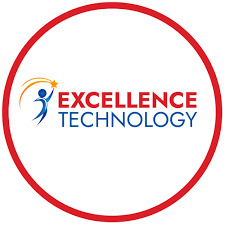
excellence technology
Excellence technology provides best software industrial training in Chandigarh which helps you to reboot your professional career to excellent point to achieve your goal. Get a All types of software testing training which helps you to increase your testing software ability With knowledgeable and experienced faculty members, a transparent teaching methodology is applied. The advanced training are few of the things that make Excellence Technology a best Industrial institute in Hamirpur.
Our training institute center
Chandigarh
Excellence Technology
SCO 80-82, Third Floor, Sector 34A, Sector 34, Chandigarh, 160022
Mobile: +91 93562-55522
see more
Mohali
Excellence Technology
C-133 First Floor Industrial Area Phase-8 Sector-72 ,Mohali
Mobile: +91 93177-88822
see more
Hamirpur
Excellence Technology Lower Bazar, Near Shiv Mandir, Hamirpur (Himachal Pradesh)
Mobile: +91 77107-88822
see more
https://www.excellencetechnology.in/wp-content/themes/excellencetechnology/images/whatsapp.png
🌐 Visit: [Click]
0 notes
Text
Unlock Your Career Potential with Expert Learning
Java is one of the most versatile and widely-used programming languages in the world, making it a popular choice for both beginners and experienced developers. Whether you're looking to build a strong foundation or advance your skills, enrolling in a Java course is the key to mastering this powerful language. In this article, we will explore why a Java course is a must for aspiring developers and the benefits it offers. By the end, you'll understand why investing in a Java course will open the door to endless career opportunities.
1. Why Choose a Java Course?
When it comes to learning programming languages, Java stands out due to its stability, versatility, and widespread usage across various industries. But why should you choose a Java course over others? Let's break down the reasons:
a. High Demand in the Job Market
Java continues to dominate the tech industry, with companies in sectors like finance, healthcare, e-commerce, and enterprise-level software development relying on Java for building robust, scalable applications. Completing a Java course can significantly increase your employability, as Java developers are always in high demand.
b. Comprehensive Learning Structure
A Java course typically covers the language from the ground up. Whether you’re a beginner or already have experience in programming, a structured Java course will teach you everything from core concepts like variables and data types to advanced topics like multithreading and design patterns.
c. Versatility in Application Development
Java is used in various application domains, including web applications, mobile applications (Android), and enterprise solutions. Learning Java opens the door to multiple career paths, from backend development to mobile app development and cloud computing.
d. Platform Independence
One of the key features of Java is its "Write Once, Run Anywhere" philosophy. Java applications are platform-independent, meaning they can run on any device with a Java Virtual Machine (JVM). This makes Java an ideal language for building cross-platform applications.
2. Key Features of Java That Make It Stand Out
a. Object-Oriented Language
Java is an object-oriented programming (OOP) language, which means it allows you to organize code into objects and classes. OOP principles like inheritance, polymorphism, and encapsulation enable developers to write clean, reusable, and maintainable code. These concepts are integral to any Java course, making it a great way to learn best practices in coding.
b. Robust Memory Management
Java’s automatic garbage collection feature helps manage memory efficiently. Unlike languages like C or C++, which require manual memory management, Java handles memory allocation and deallocation automatically, making it easier for developers to avoid memory leaks and bugs.
c. Rich API Libraries
Java comes with a vast library of pre-built classes and APIs, allowing developers to avoid reinventing the wheel. Whether you’re working with networking, GUI, or database management, Java's extensive APIs can help streamline development, saving you time and effort.
d. Security Features
Java offers a number of built-in security features, including bytecode verification, cryptographic algorithms, and secure communication protocols. These features make Java a trusted language for developing secure and reliable applications.
3. Benefits of Enrolling in a Java Course
a. Expert-Led Instruction
A Java course, especially one led by experienced instructors, offers personalized guidance and industry insights. Whether you're learning through an online platform or in a classroom, expert-led courses ensure that you get access to high-quality learning material and practical examples.
b. Hands-On Projects and Practice
A Java course is not just about theory; it’s about building real-world skills. Most Java courses include practical coding projects that allow you to apply your knowledge. This hands-on experience is crucial in preparing you for job-ready skills.
c. Peer Interaction and Networking
When you enroll in a Java course, you gain access to a community of fellow learners. Engaging with peers allows you to discuss complex topics, collaborate on projects, and form valuable connections with others in the tech industry.
d. Certification and Career Support
Completing a Java course often comes with a certification, which can significantly boost your resume. Many online platforms also offer career support, including job placement assistance, interview coaching, and resume-building tips.
4. What to Expect from a Java Course Curriculum
a. Core Java Fundamentals
At the beginning of your Java course, you’ll dive into the fundamental aspects of the language. You’ll cover topics such as:
Variables and data types
Operators and control statements
Loops and arrays
Functions and methods
Classes and objects
b. Advanced Java Concepts
Once you’ve mastered the basics, a Java course will introduce more complex topics, including:
Object-oriented programming (OOP) principles
Exception handling and debugging
Multithreading and concurrency
Collections framework
File I/O and networking
c. Database Connectivity
Learning how to interact with databases is a critical skill for any Java developer. Your course will teach you how to connect Java applications to databases using JDBC (Java Database Connectivity), and you’ll work with SQL queries, managing data, and understanding the principles of relational databases.
d. Building Real-World Applications
A well-rounded Java course will guide you through the process of building real-world applications. Whether it’s a web app, mobile app, or enterprise solution, you’ll gain the skills needed to develop full-fledged projects using Java.
5. Choosing the Right Java Course for You
a. Online Courses vs. Traditional Courses
In today’s digital age, there are multiple ways to learn Java. Online courses are highly flexible and often come with lifetime access to materials, which is ideal for those with a busy schedule. However, traditional classroom settings can offer a more structured and interactive learning experience.
b. Course Prerequisites
Before enrolling, ensure that you meet the prerequisites for the course. Some Java courses may assume you have basic programming knowledge, while others are beginner-friendly and require no prior experience.
c. Course Reviews and Accreditation
Look for courses that are well-reviewed by past students and are accredited by reputable organizations. A certified course from an established platform adds credibility to your resume.
6. Career Opportunities After Completing a Java Course
After completing your Java course, you’ll be well-equipped to pursue various career paths. Java developers can work as:
Backend Developers
Mobile App Developers (Android)
Full-Stack Developers
Software Engineers
Cloud Developers
Additionally, Java is in demand for roles such as DevOps engineers, data engineers, and system architects. The demand for skilled Java professionals continues to grow, making this an excellent career choice.
Conclusion
A Java course is a valuable investment for anyone looking to enhance their programming skills and unlock exciting career opportunities. Whether you're a beginner or an experienced developer, learning Java will provide you with the expertise needed to thrive in the tech industry. From its wide application in web and mobile development to its career potential, mastering Java through a structured course will set you on the path to success. So, what are you waiting for? Enroll in a Java course today and take the first step toward achieving your career goals.
1 note
·
View note
Text
Python Training Institute in Chandigarh
Python Programming: An Essential Guide
Python has emerged as one of the most popular and versatile programming languages in today’s tech-driven world. Whether you’re a beginner or an expert, Python offers simplicity, efficiency, and power that are unmatched by most languages. In this guide, we’ll explore Python's key features and why it's a must-learn for anyone entering the field of software development.
Key Features of Python
Simple Syntax: Python is known for its easy-to-understand syntax, making it a preferred language for beginners and professionals alike. It reads like English, reducing the learning curve significantly.
Versatile Applications: From web development to data science, machine learning, automation, and artificial intelligence, Python is a go-to for multiple industries.
Cross-Platform Language: Python is platform-independent, meaning you can run Python code on various operating systems like Windows, macOS, and Linux without modification.
Extensive Libraries and Frameworks: Python boasts a wide range of libraries such as Pandas, NumPy, and TensorFlow, which simplify coding for specific applications.
Strong Community Support: With its large and active user base, Python has an abundant source of documentation, tutorials, and forums to solve problems and enhance learning.
Why You Should Learn Python
High Demand in the Job Market: Python developers are in high demand across a variety of sectors, including web development, fintech, data analysis, and scientific computing.
Beginner-Friendly: Python’s intuitive nature makes it an excellent first language for newcomers to programming.
Integration with Other Technologies: Python seamlessly integrates with other programming languages and technologies, enhancing its utility in complex projects.
Conclusion
Python’s simplicity, versatility, and broad application range make it an essential language for both beginners and seasoned professionals. With its ever-growing community and resources, learning Python opens up countless career opportunities. Dive into Python programming today and unlock your potential.
0 notes
Text
Python Training Institute in Chandigarh
Python Programming: An Essential Guide
Python has emerged as one of the most popular and versatile programming languages in today’s tech-driven world. Whether you’re a beginner or an expert, Python offers simplicity, efficiency, and power that are unmatched by most languages. In this guide, we’ll explore Python's key features and why it's a must-learn for anyone entering the field of software development.
Key Features of Python
Simple Syntax: Python is known for its easy-to-understand syntax, making it a preferred language for beginners and professionals alike. It reads like English, reducing the learning curve significantly.
Versatile Applications: From web development to data science, machine learning, automation, and artificial intelligence, Python is a go-to for multiple industries.
Cross-Platform Language: Python is platform-independent, meaning you can run Python code on various operating systems like Windows, macOS, and Linux without modification.
Extensive Libraries and Frameworks: Python boasts a wide range of libraries such as Pandas, NumPy, and TensorFlow, which simplify coding for specific applications.
Strong Community Support: With its large and active user base, Python has an abundant source of documentation, tutorials, and forums to solve problems and enhance learning.
Why You Should Learn Python
High Demand in the Job Market: Python developers are in high demand across a variety of sectors, including web development, fintech, data analysis, and scientific computing.
Beginner-Friendly: Python’s intuitive nature makes it an excellent first language for newcomers to programming.
Integration with Other Technologies: Python seamlessly integrates with other programming languages and technologies, enhancing its utility in complex projects.
Conclusion
Python’s simplicity, versatility, and broad application range make it an essential language for both beginners and seasoned professionals. With its ever-growing community and resources, learning Python opens up countless career opportunities. Dive into Python programming today and unlock your potential.
0 notes
Text
Full Stack Web Development Training Institute in Chandigarh
Unlocking the Power of Full Stack Learning
Introduction to Full Stack Learning
Full stack learning encompasses the essential skills required to develop both front-end and back-end components of web applications. This comprehensive approach equips learners with a holistic understanding of web development, enabling them to build complete, functional applications.
Why Choose Full Stack Learning?
Versatility in Skills
Gain proficiency in multiple programming languages.
Become adept in both client-side and server-side technologies.
Career Opportunities
High demand for full stack developers in the job market.
Increased earning potential with diverse skill sets.
Enhanced Problem-Solving Skills
Learn to tackle challenges from multiple angles.
Develop a more systematic approach to debugging and optimization.
Core Components of Full Stack Learning
Front-End Development
Languages: HTML, CSS, JavaScript.
Frameworks: React, Angular, Vue.js.
Back-End Development
Languages: Node.js, Python, Ruby.
Frameworks: Express, Django, Ruby on Rails.
Database Management
SQL and NoSQL: MySQL, MongoDB.
Data Manipulation: Understanding CRUD operations.
Tools and Technologies for Full Stack Learning
Version Control: Git, GitHub.
Development Environments: VS Code, IntelliJ IDEA.
APIs and Integration: RESTful services, GraphQL.
Tips for Effective Full Stack Learning
Hands-On Practice
Engage in real-world projects to solidify your knowledge.
Utilize coding challenges and hackathons.
Stay Updated
Follow industry trends and best practices.
Participate in online forums and communities.
Build a Portfolio
Showcase your projects on platforms like GitHub.
Create a personal website to highlight your skills and experience.
Conclusion
Embracing full stack learning is a transformative journey that opens doors to numerous career pathways. By mastering both front-end and back-end technologies, you position yourself as a valuable asset in the tech industry.
0 notes
Text
Java: A Comprehensive Guide for Developers
Java is one of the most popular programming languages, widely used in web development, mobile applications, and enterprise solutions. It’s known for its platform independence, object-oriented nature, and robust performance. In this guide, we will explore key aspects of Java, its features, and why it continues to be a top choice for developers.
1. What is Java?
Java is a high-level, class-based, and object-oriented programming language. Initially developed by Sun Microsystems in 1995, Java allows developers to "write once, run anywhere" (WORA). This makes it ideal for creating scalable and flexible applications across various platforms.
Keywords: Java programming, object-oriented, cross-platform
2. Key Features of Java
Java offers several distinct features that make it a reliable choice for developers:
Platform Independence: Java code runs on any device or operating system with the Java Virtual Machine (JVM).
Object-Oriented: Java’s focus on objects simplifies code reusability and modularity.
Robust Security: Java provides a secure environment for coding, preventing unauthorized access and data leaks.
Multithreading: Java supports concurrent execution of tasks, enhancing performance.
Automatic Memory Management: With built-in garbage collection, Java handles memory allocation automatically.
Keywords: Java features, JVM, secure programming, multithreading, memory management
3. Why Java is Ideal for Web and Mobile Applications
Java's adaptability across different environments makes it the preferred language for web and mobile app development. Here’s why:
Cross-Platform Compatibility: Java applications can be run on any platform without modification.
Wide Range of Libraries: Java has a vast library ecosystem, accelerating development for complex applications.
Community Support: With millions of developers worldwide, Java has strong community backing and extensive documentation.
Keywords: Java development, mobile applications, web applications, platform compatibility, Java libraries
4. Future of Java in Software Development
Java continues to evolve, with regular updates improving performance, security, and features. It remains relevant for modern-day web, mobile, and cloud-based applications, ensuring its place in the future of software development.
Keywords: future of Java, Java updates, software development, Java evolution
0 notes
Text
Python Programming: An Essential Guide
Python has emerged as one of the most popular and versatile programming languages in today’s tech-driven world. Whether you’re a beginner or an expert, Python offers simplicity, efficiency, and power that are unmatched by most languages. In this guide, we’ll explore Python's key features and why it's a must-learn for anyone entering the field of software development.
Key Features of Python
Simple Syntax: Python is known for its easy-to-understand syntax, making it a preferred language for beginners and professionals alike. It reads like English, reducing the learning curve significantly.
Versatile Applications: From web development to data science, machine learning, automation, and artificial intelligence, Python is a go-to for multiple industries.
Cross-Platform Language: Python is platform-independent, meaning you can run Python code on various operating systems like Windows, macOS, and Linux without modification.
Extensive Libraries and Frameworks: Python boasts a wide range of libraries such as Pandas, NumPy, and TensorFlow, which simplify coding for specific applications.
Strong Community Support: With its large and active user base, Python has an abundant source of documentation, tutorials, and forums to solve problems and enhance learning.
Why You Should Learn Python
High Demand in the Job Market: Python developers are in high demand across a variety of sectors, including web development, fintech, data analysis, and scientific computing.
Beginner-Friendly: Python’s intuitive nature makes it an excellent first language for newcomers to programming.
Integration with Other Technologies: Python seamlessly integrates with other programming languages and technologies, enhancing its utility in complex projects.
Conclusion
Python’s simplicity, versatility, and broad application range make it an essential language for both beginners and seasoned professionals. With its ever-growing community and resources, learning Python opens up countless career opportunities. Dive into Python programming today and unlock your potential.
0 notes
Text
Computer Course in Chandigarh
What is computer course? Benefit of Computer course. A computer is a versatile electronic device designed to process, store, and manage data through a combination of hardware and software. Its primary function is to execute a wide range of tasks based on programmed instructions, making it an indispensable tool in modern society.
Hardware and Components
The core of a computer's hardware includes the Central Processing Unit (CPU), which is often likened to the brain of the computer. The CPU carries out instructions from programs by performing basic arithmetic, logic, control, and input/output operations. The performance of a computer largely depends on the speed and efficiency of its CPU.
Memory, particularly Random Access Memory (RAM), is crucial for a computer's operation. RAM serves as short-term memory, temporarily holding data and instructions that the CPU needs while performing tasks. The more RAM a computer has, the more data it can handle simultaneously, which often leads to better performance in multitasking environments.
Storage is another essential component. Computers use storage devices like Hard Disk Drives (HDDs) or Solid-State Drives (SSDs) to save data and programs for long-term use. SSDs are generally faster and more reliable than HDDs, but both serve the crucial role of retaining information even when the computer is turned off.
The motherboard, or main circuit board, is the central hub where all the components connect and communicate. It houses the CPU, RAM, and other essential parts and provides pathways for data to travel between these components. The motherboard also includes connectors for additional hardware like graphics cards and storage devices.
Input and Output Devices:-
Computers rely on input devices to receive data from users. Common input devices include keyboards, mice, and touchscreens. These devices allow users to interact with the computer, enter data, and execute commands.
Output devices, on the other hand, are used to present the results of computer processes. Monitors display visual information, while printers produce physical copies of documents. Other output devices might include speakers for audio output or projectors for large-scale presentations.
Software and Operating Systems:-
The software is a set of instructions that tells the computer how to perform specific tasks. The most fundamental software is the operating system (OS), which manages the computer's hardware and provides a user interface. Popular operating systems include Windows, macOS, and Linux. The OS facilitates user interaction by providing a graphical user interface (GUI) with icons, windows, and menus.
Applications or software programs run on top of the operating system and perform specialized functions. These can range from productivity tools like word processors and spreadsheets to entertainment software like video games and multimedia players.
Networking and Connectivity:-
Modern computers are often networked to communicate with other devices and systems. Networking allows computers to share resources, such as files and printers, and access the internet. This connectivity is enabled through various interfaces, including Ethernet ports, Wi-Fi, and Bluetooth. The internet itself is a vast network of computers interconnected globally, allowing for information sharing, communication, and access to online services.
Evolution and Impact:-
The development of computers has dramatically transformed various aspects of life. From personal computing to business operations and scientific research, computers have revolutionized how we work, learn, and interact. They have enabled advancements in fields like artificial intelligence, data analysis, and automation, shaping the modern world in profound ways.
In summary, a computer is a complex and adaptable machine that performs a wide range of functions through its hardware components and software. Its ability to process data and execute instructions makes it a fundamental tool in contemporary life, driving innovation and efficiency across various domains.

Benefit of Computer:- Computers offer numerous benefits across various domains. Here are some key advantages:
Efficiency and Speed:- Computers can process and analyze data much faster than humans. This speed enhances productivity in various fields, from business to scientific research.
Data Storage and Management:-They provide massive storage capacity for data and allow for efficient organization, retrieval, and management of information.
Automation:- Computers can automate repetitive tasks, reducing the need for manual intervention and minimizing errors. This is especially useful in manufacturing, data entry, and other routine processes.
Connectivity and Communication:- They enable instant communication and collaboration through email, social media, and video conferencing, bridging geographical gaps.
Information Access:- The internet provides vast amounts of information on virtually any topic, making research and learning more accessible than ever before.
Problem-Solving and Simulation:- Computers can model complex systems and run simulations to solve problems or predict outcomes in fields like engineering, finance, and medicine.
Entertainment and Creativity: -They offer platforms for gaming, digital art, music production, and other creative endeavors, enhancing leisure and self-expression.
Education and Training:- Computers facilitate e-learning, virtual classrooms, and access to educational resources, making education more flexible and available.
Healthcare Advancements:- They play a crucial role in diagnostics, treatment planning, medical research, and the management of healthcare records.
Economic Growth:-Computers drive innovation and efficiency in businesses, contributing to economic development and creating new job opportunities.
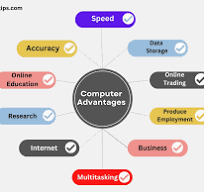
COMPUTER COURSE:-
Introduction to Computer Science:- This course covers the fundamentals of computer science, including programming basics, algorithms, data structures, and problem-solving techniques. It introduces students to key concepts and tools used in the field, laying the foundation for more advanced studies.
Data Structures and Algorithms:- Focused on the core building blocks of computer science, this course dives into various data structures (like arrays, linked lists, stacks, and queues) and algorithms (such as sorting and searching). Students will learn how to choose and implement the most efficient solutions to computational problems.
Web Development Fundamentals:- This course provides an overview of web development, including HTML, CSS, and JavaScript. Students will learn how to create and design websites, handle user interactions, and ensure compatibility across different browsers and devices .
Introduction to Cybersecurity:-This course introduces the principles of cybersecurity, including threat detection, risk management, and security protocols. Students will gain an understanding of how to protect information systems and data from cyber threats .
Database Management Systems:-This course explores the design, implementation, and management of databases. Topics include relational database design, SQL querying, data normalization, and database administration.
Software Engineering Principles:-Focused on the methodologies and best practices of software development, this course covers the software development lifecycle, including requirements analysis, design, coding, testing, and maintenance. Students will learn about various software engineering models and tools.
Machine Learning and Artificial Intelligence:-This course provides an introduction to machine learning and AI concepts, including supervised and unsupervised learning, neural networks, and natural language processing. Students will learn to implement and evaluate machine learning models using popular frameworks.
Mobile App Development:-This course covers the development of applications for mobile devices. It includes topics like mobile operating systems, user interface design, app architecture, and integration with APIs. Students will gain hands-on experience with tools and frameworks for both iOS and Android development.
Cloud Computing Fundamentals:- This course introduces cloud computing concepts and services. Students will learn about cloud service models (IaaS, PaaS, SaaS), deployment models, and popular cloud platforms. The course also covers cloud security and cost management.
Ethical Hacking and Penetration Testing:- This course explores the techniques and tools used in ethical hacking and penetration testing. Students will learn how to identify vulnerabilities in systems, conduct security assessments, and implement measures to safeguard against cyber attacks
IMPORTANCE OF COMPUTER COURSE:- Taking a computer course can be incredibly valuable for a variety of reasons:
Career Opportunities:- In today's job market, computer skills are often essential. Many professions require a basic understanding of computer systems, software applications, and data management. Advanced computer courses can also open doors to specialized fields like programming, cybersecurity, and data analysis.
Productivity:- Learning how to use software efficiently can significantly boost productivity. Courses can teach you how to use tools like spreadsheets, word processors, and presentation software more effectively, which can be beneficial in both personal and professional settings.
Technical Literacy:- Understanding how computers work and how to troubleshoot common issues can save time and reduce frustration. It also helps you make informed decisions about technology and digital tools.
Problem-Solving Skills:- Many computer courses involve learning how to approach and solve complex problems, which can enhance your analytical and critical thinking skills.
Digital Literacy: -As technology evolves, being digitally literate is crucial. This includes understanding internet safety, privacy, and the ability to discern credible information from unreliable sources.
Adaptability:- Technology is constantly changing, and taking computer courses can help you stay current with new tools and technologies, making it easier to adapt to changes in your work or personal life.rning how to code, design, or use digital tools can lead to new ideas and projects.
Personal Development:- Gaining new skills can boost your confidence and provide a sense of accomplishment. It can also be a great way to pursue personal interests, whether that’s building your own website, creating digital art, or automating tasks.
Creativity and Innovation:- Many computer courses, especially those related to programming or digital media, encourage creativity and innovation.
Best institute in Chandigarh for Computer course:-
Excellence Technology provide the Computer course. I have also 6th month training experience in Excellence Technology. I can suggest the professional course in Excellence Technology , the institute also provide the courses like Web Developing , Java, C and C++, Digital Marketing etc.

Web Developing:- Web Development course offers a comprehensive introduction to creating and maintaining dynamic websites. Covering both front-end and back-end development, students learn HTML5, CSS3, JavaScript, and popular frameworks like React and Node.js. The course emphasizes responsive design, user experience, and modern web technologies. With hands-on projects and real-world applications, participants build practical skills in coding, debugging, and deploying web applications. Ideal for beginners and professionals alike, this course equips you with the tools to develop robust, user-friendly websites and applications. Gain the expertise needed to start a career in web development or enhance your existing skill set. Java:- Java course provides a solid foundation in one of the most widely-used programming languages. Students will learn core Java concepts, including object-oriented programming, data structures, and algorithms. The course covers Java syntax, control structures, and exception handling, along with advanced topics like multithreading, file I/O, and Java’s standard libraries. Through hands-on exercises and real-world projects, participants will gain practical experience in developing robust, scalable applications. Ideal for beginners and those looking to deepen their programming skills, this course prepares you for Java development roles and enhances your problem-solving abilities in a professional context.
C and C++:- C and C++ course offers a comprehensive introduction to these foundational programming languages. Students will explore C’s core concepts, including syntax, data types, pointers, and memory management. The course then transitions to C++, covering object-oriented programming, classes, inheritance, and polymorphism. Through practical exercises and projects, participants will gain hands-on experience in writing efficient, high-performance code. Ideal for beginners and those seeking to enhance their programming expertise, this course equips you with the skills needed for system programming, game development, and high-performance applications. Mastering C and C++ opens doors to various advanced programming and development opportunities.
Digital Marketing:- Digital Marketing course equips you with the essential skills to thrive in the online marketplace. Covering key areas such as search engine optimization (SEO), social media marketing, content creation, email marketing, and pay-per-click (PPC) advertising, the course provides a comprehensive understanding of digital strategies and tools. Students learn to analyze market trends, optimize digital campaigns, and leverage analytics for data-driven decision-making. Through hands-on projects and real-world scenarios, you’ll gain practical experience in developing and executing effective marketing strategies. Perfect for aspiring marketers and business owners, this course prepares you to drive growth and engagement in the digital world.
ABOUT AUTHOR
My name is Sunyour . I have a experience of computer course of 6th months training in excellence technology.

1 note
·
View note
Text
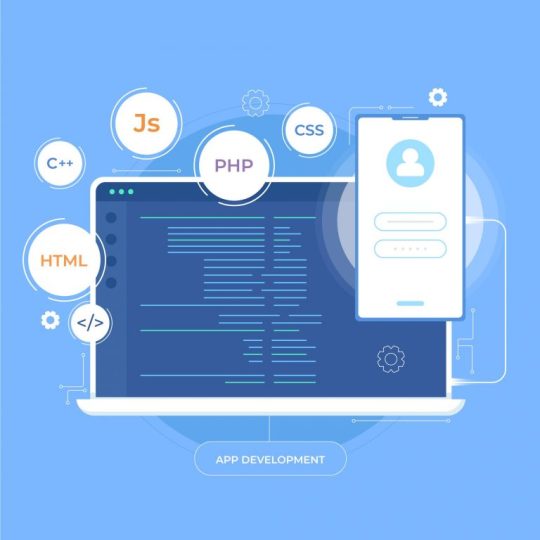
C and C++ Training In Chandigarh
C And C++ Training Institute C++ is the most powerful and flexible object oriented programming computer language which is used for operating systems, compilers, interpreters, search engine and graphic programs. We offer C and C++ Training In Chandigarh this course to help students clear their C++ concepts through a combination of theory and lab practice.
0 notes
